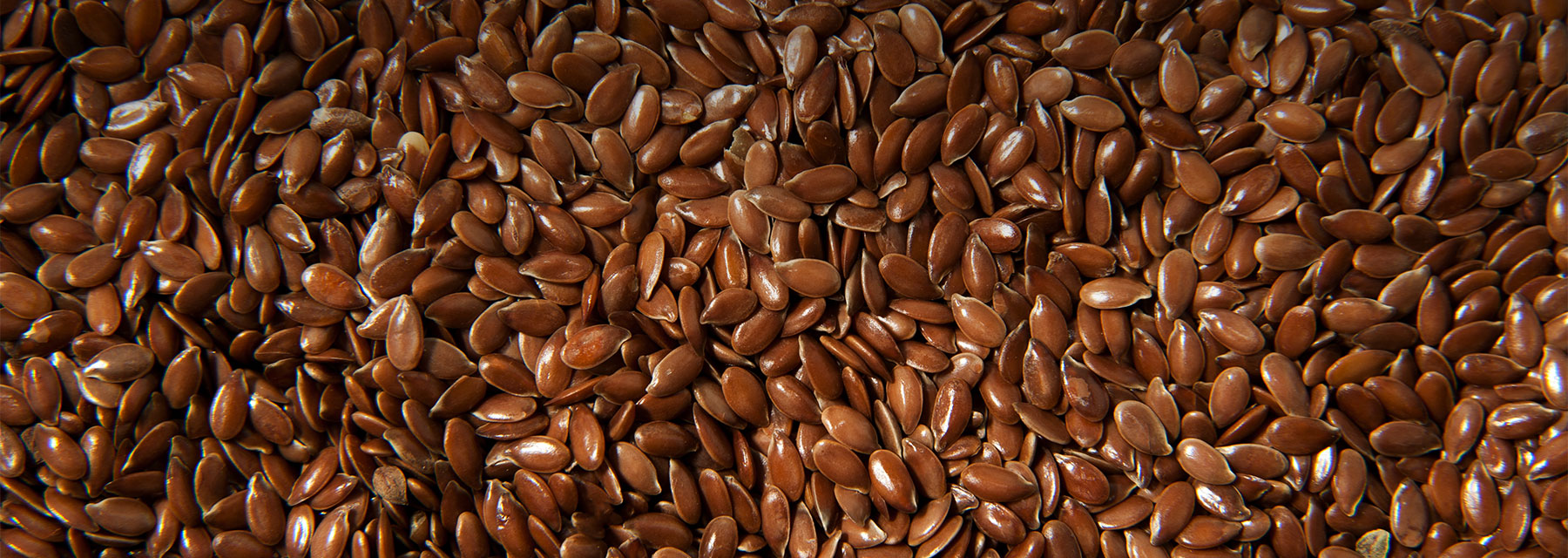Can Flaxseed Provide Benefits for Your Horse?
Flaxseed is the best source of alpha linolenic acid (ALA), which is the most prevalent omega-3 fatty acid in plant food. ALA naturally exists in fresh pasture grass, however, it is quickly depleted in hay. Horses that are fed a hay-based diet will consume significantly less omega-3 fatty acids than horses that have consistent access to quality pasture grasses. Once hay has been cut, cured and baled, there is a rapid decline in the concentration of omega-3 fatty acids.
Flaxseed is the foundation of the Platinum Wellness formula and offers the many benefits that come with a high dietary concentration of omega-3 fatty acids. Omega-3 fatty acids provide a wide spectrum of health benefits. Supplementation with omega-3 fatty acids typically results in a sleek coat and healthy skin, but more importantly supports a healthy, normal internal inflammatory response. Veterinarians often recommend omega-3 fatty acid supplements to support overall health and wellness.
Flax-based omega-3 supplementation has been shown to effectively increase the cell membrane content of omega-3 fatty compared to non-supplemented horses. Omega-3 fatty acids impact each cell membrane by increasing membrane fluidity. This enhances cell-to-cell communication, cell receptor function and controls the transport of compounds into and out of the cell. Benefits attributed to flax-based supplements, such as the Platinum Wellness formula, have been seen in people, horses and dogs.
Benefits of Omega-3 Fatty Acids Found in Flaxseed for Horses
Supports:
- hair and coat health
- joints and soft tissues
- the immune system
- circulation and vascular health
- normal gastrointestinal function
- sperm motility and viable count
- normal hoof growth
Omega-3 Fatty Acids vs Omega-6 Fatty Acids
Both omega-3 and omega-6 acids are often noted as “essential” fats as they are required in the horse’s daily diet, and horses are unable to synthesize these fats internally. The ratio of these fats is important as the natural grazing diet of the horse provides about 5 times the amount of omega-3 fatty acids to omega-6 fatty acids. Typical modern diets that include grain or corn oil, high omega-6 feed components, can quickly inverse the levels of fatty acids, providing much higher levels of omega-6 fats. Supplementation with plant-based omega-3 fatty acids, such as in flaxseed, can help to rebalance the ratio of omega-3 to omega-6 fatty acids toward that of a natural grazing diet.
Does Flaxseed Quality Matter When Feeding Horses?
Platinum Performance takes immense pride in producing the highest quality, most bioavailable products on the market. All of our raw ingredients are tested for potency and purity both in-house and are also sent to a third-party research laboratory for verification. Platinum Performance uses proprietary protocols for processing that include cold-pressing whole flaxseeds and avoiding high-heat milling processes that can denature the fatty acids and other fragile nutrients. The flax is stabilized during processing in a proprietary manufacturing procedure to ensure that the flax stays fresh within its recommended shelf life. Antioxidants also act as natural stabilizers to prevent oxidation of the delicate omega-3 fatty acids. Platinum products are made fresh daily, and each container is labeled with the date it was made.
Can I Grind My Own Flaxseed?
Flaxseeds should not be fed whole as most will pass undigested through the horse’s digestive tract with the outer hull intact. Flaxseeds are commonly ground to expose the beneficial seed portion inside the hard hull. Grinding flaxseeds must be done almost immediately before feeding as freshly ground flaxseed meal is highly vulnerable to oxygenation in the air, making it very susceptible to rancidity and spoiling. Because of this, Platinum goes to great lengths to ensure quality and stability against rancidity by adding in natural antioxidants and sealing in airtight proprietary packaging to ensure freshness.
How Do I Use Flaxseed Oil for My Horse?
Flaxseed oil is a versatile source of omega-3 fatty acids. As oils contain more calories than most feeds per comparable unit, flax oil can be used as a healthy source of calories for horses needing to gain weight. At lower quantities, flax oil can offer the same benefits as flaxseed meal due to its high levels of ALA. Flax oil is an ideal alternative to oils that contain higher levels of omega-6 fatty acids, such as the commonly used corn oil which contains 45 times the amount of omega-6 fatty acids compared to omega-3 fatty acids. Flaxseed oil should smell nearly odorless, and should be unrefined to retain the natural compounds and properties for health benefits. Cold pressing from a whole seed protects the oil from rancidity and damage caused by heat and harsh chemicals.

by Emily Smith, MS,
Platinum Performance®
